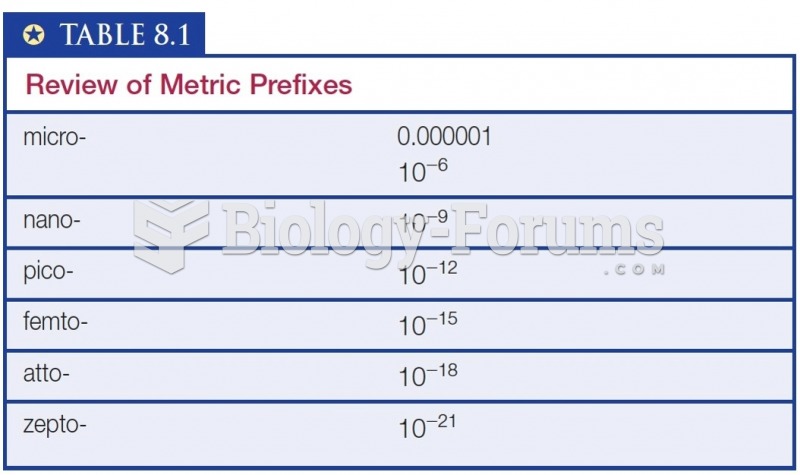|
|
|
Increased intake of vitamin D has been shown to reduce fractures up to 25% in older people.
Sildenafil (Viagra®) has two actions that may be of consequence in patients with heart disease. It can lower the blood pressure, and it can interact with nitrates. It should never be used in patients who are taking nitrates.
Bacteria have flourished on the earth for over three billion years. They were the first life forms on the planet.
Looking at the sun may not only cause headache and distort your vision temporarily, but it can also cause permanent eye damage. Any exposure to sunlight adds to the cumulative effects of ultraviolet (UV) radiation on your eyes. UV exposure has been linked to eye disorders such as macular degeneration, solar retinitis, and corneal dystrophies.
The Romans did not use numerals to indicate fractions but instead used words to indicate parts of a whole.







